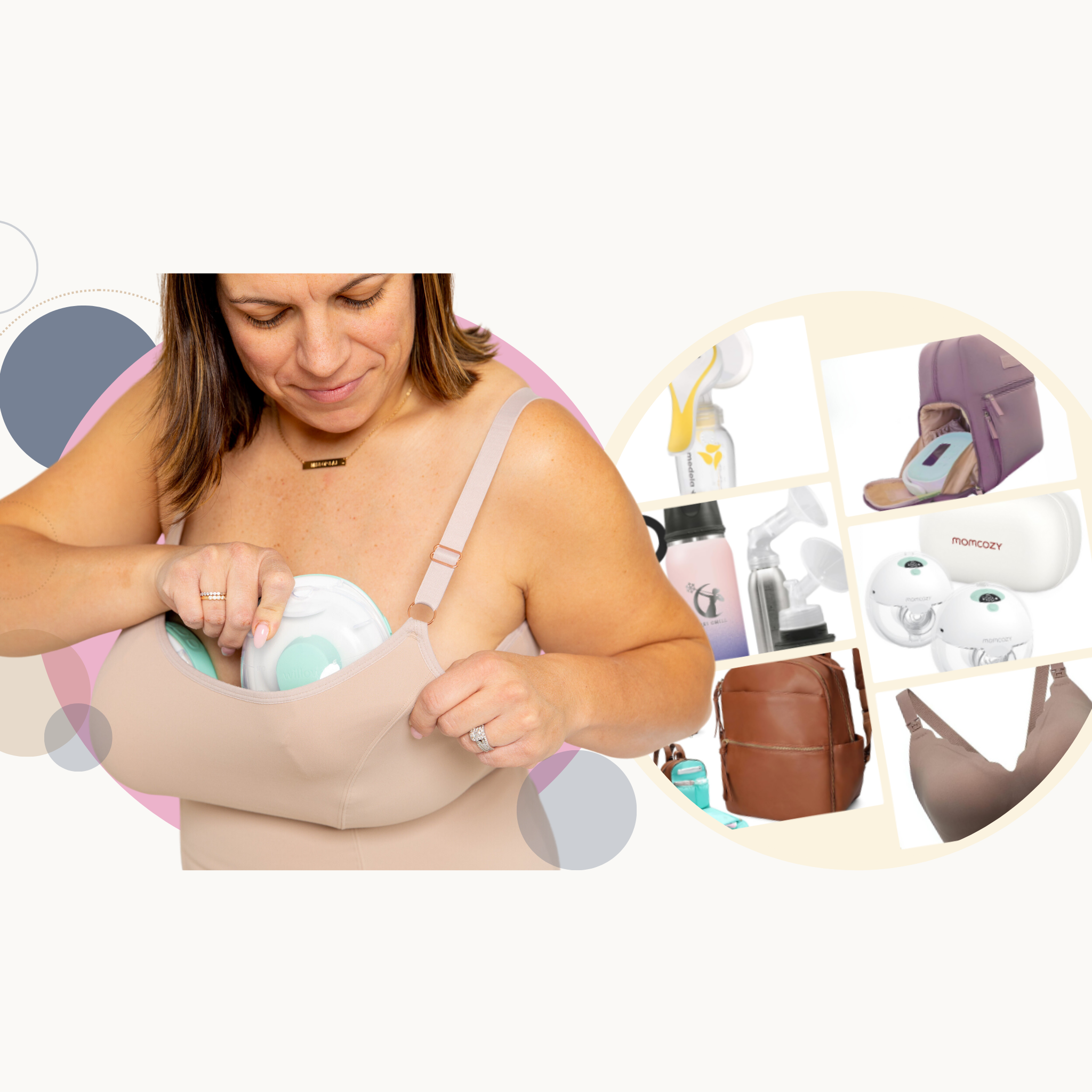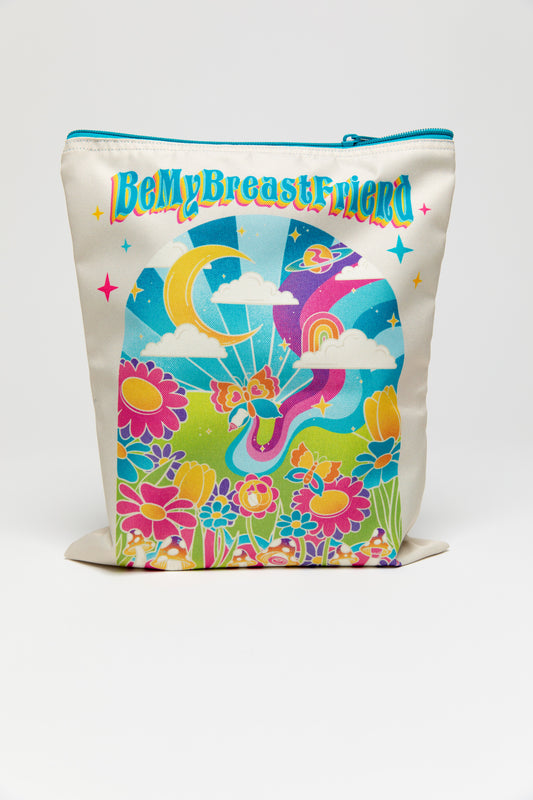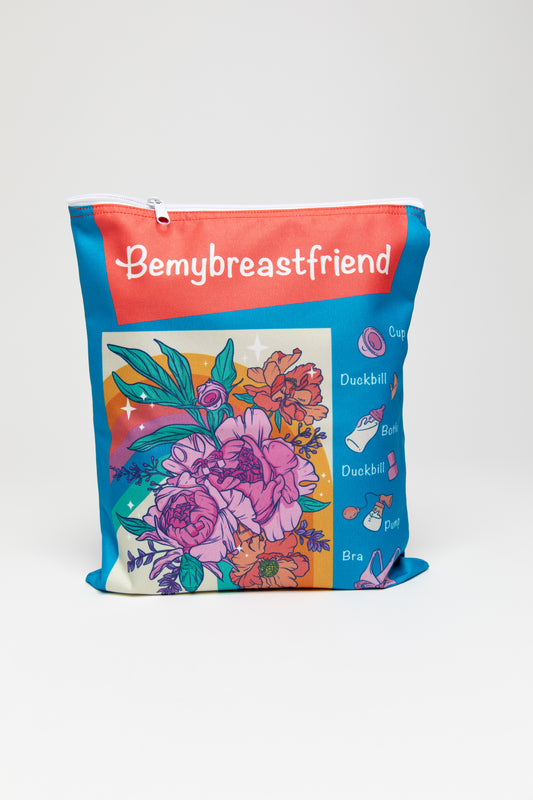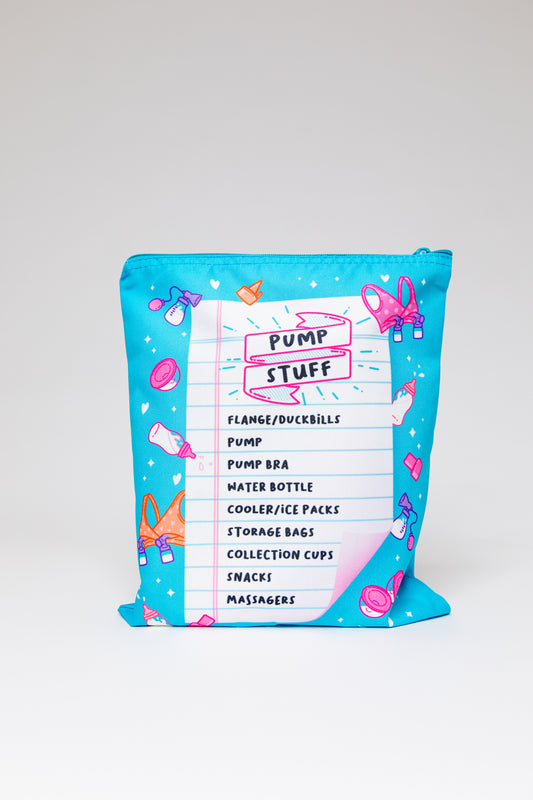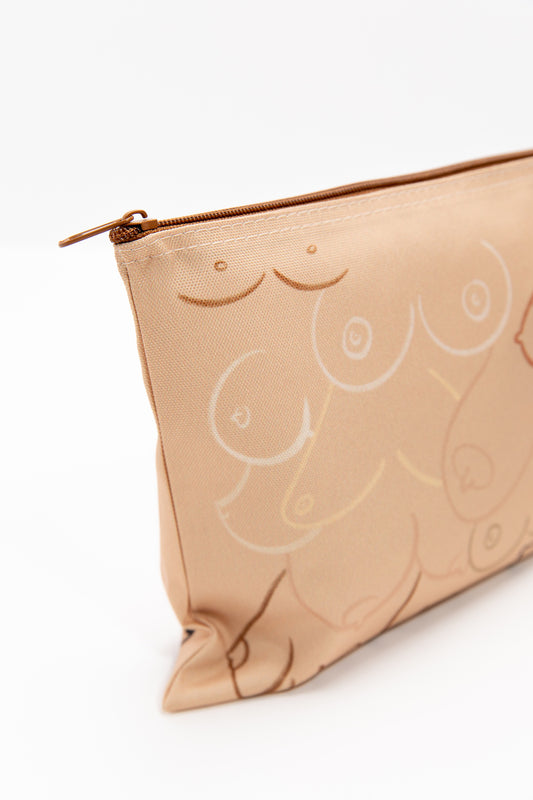
Let’s talk about breastfeeding and tattoos—because for some women, “mom life” might involve debating whether your new ink should be your baby’s birthdate, a delicate birth flower design, or maybe just a large cup of coffee to represent this season of life - kidding, sort of. Or, perhaps you just need something exciting and adventurous in your life! Mom and Dad matching tattoos?!
Whether you’re already inked or itching to book that appointment, here’s what you need to know about getting, keeping, or removing tattoos while navigating your breastfeeding journey.
Is it Safe to Get a New Tattoo While Breastfeeding?
The short answer: probably, just tread cautiously. Getting a tattoo involves tattoo needles that inject ink into the dermal layer of the skin. While beautiful, the process isn’t without potential risks, particularly for breastfeeding mamas.
What’s in Tattoo Ink?
Most tattoo pigments are made with various materials, including heavy metals and organic compounds. Sounds a little scary for a breastfeeding mom, right? Well, the nice thing is that the ink molecules used are generally too large to enter your breast milk. However, little research has been done to confirm this definitively, which does leave room for a bit of uncertainty.
There are some vegan brands of tattoo ink on the market that may be safer than regular tattoo ink, though you might still want to consider waiting until you are done breastfeeding a very small baby to avoid any potential risks. Natural henna and temporary tattoos are other options to ponder, though black henna can contain toxic chemicals like paraphenylenediamine (PPD).
Risk of Infection
A more prevalent concern with getting a new tattoo while breastfeeding is the possibility of a skin infection or, worse, a systemic infection. A localized infection (redness, swelling, or an open wound) can escalate without proper aftercare.
For safety, always:
- Choose a trust-worthy tattoo artist with a good reputation. Read those reviews!
- Verify the use of sterile equipment, including single-use needles and single-use inks.
- Make sure the tattoo studio complies with local laws and maintains universal precautions to prevent cross contamination. Many tattoo artists will even make pregnant and breastfeeding moms sign a waiver to acknowledge potential risks.
Healing and Hormonal Changes
Tattoos generally take about 2 to 4 weeks to heal completely. During this healing process, your body’s immune system is hard at work. Your immune system is already taking a hit when you are low on sleep as a postpartum mama, so healing can take even longer. Plus, with hormonal changes from breastfeeding, your skin could be more sensitive than usual.
To summarize, if you’re still exclusively breastfeeding a young baby, it might not be the best time in the world to get a new tattoo. Now, is it possible to get new ink and be totally fine? Of course! But, waiting until your baby is older or weaned can just make things easier on your body and limit your risk for infection.
What About Pre-Existing Tattoos?
Good news! It's very unlikely that your pre-existing permanent tattoos would affect your breastfeeding journey or your milk supply. That said, keep an eye out for allergic reactions if you are exposed to the sun or certain chemicals. If your pre-existing tattoo becomes red, itchy, or swollen, consult your healthcare provider for advice.
What About Tattoo Removal While Breastfeeding?
Let's chat about another popular tattoo-related procedure - tattoo removal. Laser tattoo removal, though effective, may not be ideal while you're breastfeeding.
The tattoo removal process breaks down the ink particles in your tattoo into smaller particles, which are then processed by your lymphatic system. It isn't quite sure how this would impact breast milk, so you're better off waiting until after your breastfeeding journey is over to get rid of an unwanted tattoo.
Laser treatments also cause temporary skin trauma, which, as with getting a new tattoo, poses a risk for a local infection or bacterial infection if not handled properly. Inattention to such infections can lead to severe complications, as stated above.
What Should I do if I End up With a Skin Infection?
Maybe you've taken all of the proper precautions and you still feel an infection is beginning. As with any medical issue while breastfeeding, don't wait it out, especially if your skin becomes inflamed or painful.
Treatment could require antibiotics, but not all are breastfeeding friendly. Always check with your healthcare provider or a certified lactation consultant if you are unsure about the safety of a certain medication. For more information on taking medications while breastfeeding, see my blog post here.
A Permanent Connection Between Mother and Child
This whole breastfeeding and tattoos conversation has me feeling sentimental. Tattoos often symbolize the permanent importance of something in your life - memories, identities, or loved ones. Our breastfeeding journeys, no matter how long or how short, no matter if we pump, nurse, or both, deserve to be remembered too.
Take pictures while nursing your baby, pumping, and bottle feeding your baby. Though you may feel disheveled or unworthy in the moment (hello, dirty hair and milk stains!), you will someday look back on these photos with a smile. Journal about your experiences in a baby book or a simple notes app on your phone. Or heck, get a tattoo of your favorite breast pump logo. HA! Time flies, friends. Enjoy the little moments.
To Ink or Not to Ink?
There are lots of things breastfeeding moms have to be careful about, from tattoos to antibiotics to sunscreen. Ultimately, the decision is yours to combine breastfeeding and tattoos, or not. Whether it's simply a celebration of motherhood or an act of self-expression, make sure to prioritize safety and take time to make an informed decision.
While tattoos are permanent, your breastfeeding journey is not. Embrace the beauty in this season of providing nourishment for your little one.
References:
https://llli.org/breastfeeding-info/tattoos-and-breastfeeding/
https://geneticliteracyproject.org/2014/10/21/women-carry-fetal-dna-long-after-childrens-birth/

